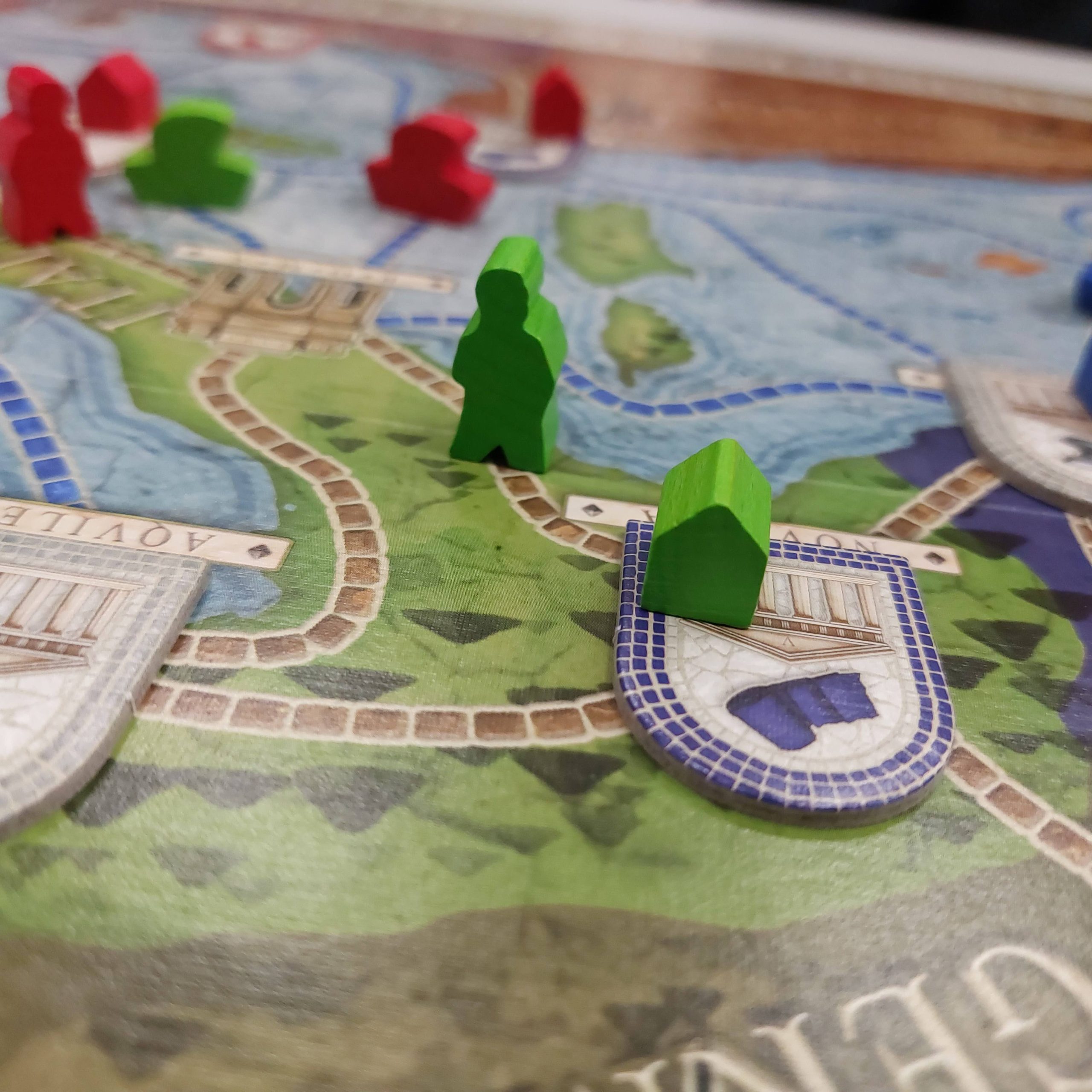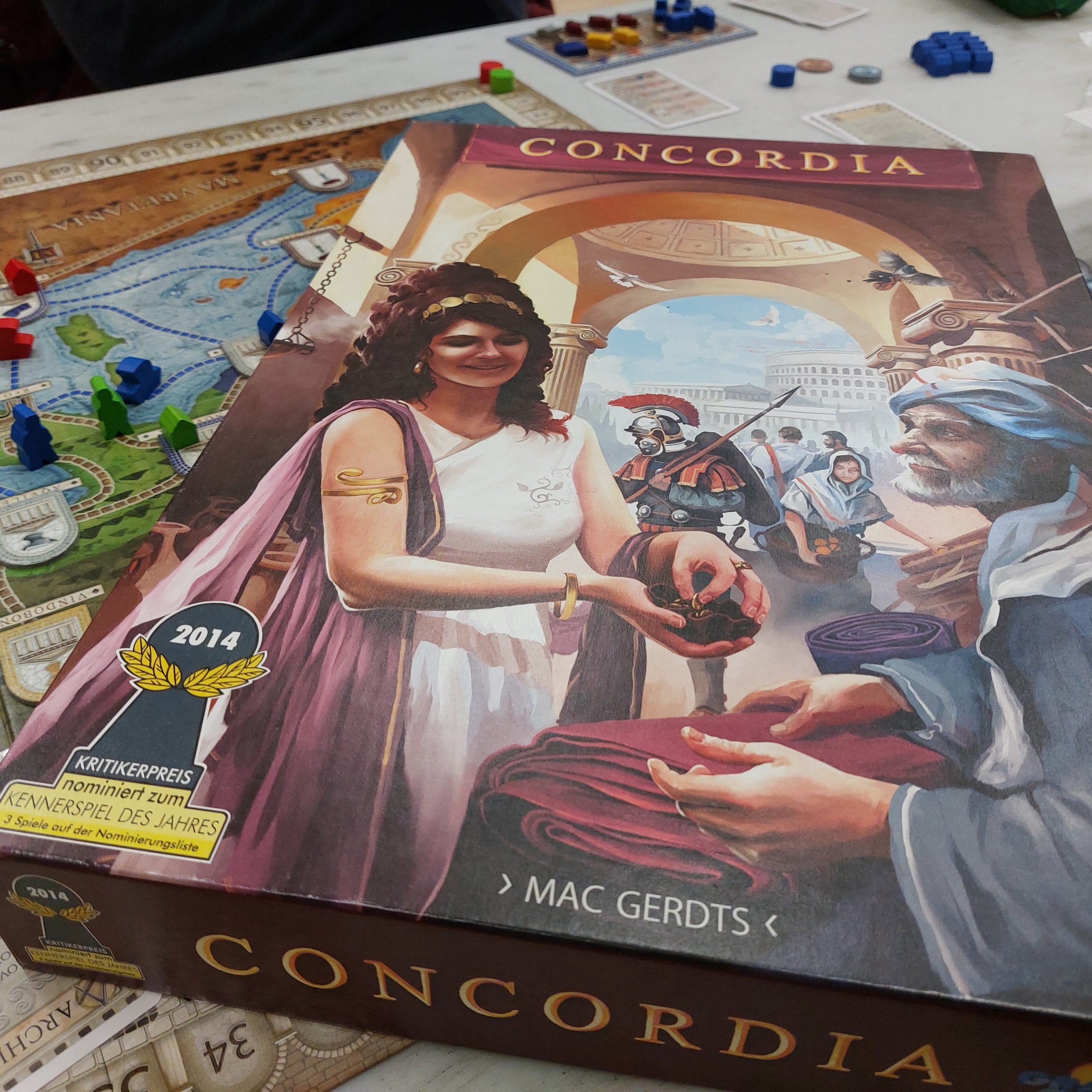Concordia, often known as the game with the terrible box art, has been out for over 10 years. Where has time gone? It’s an economic game set in the Roman era that sees you moving colonists around the board to build in different cities, producing and selling goods. I’ve loved Concordia, even when we first played it wrong – probably for about a year. How wrong? Well, we never added multipliers to scoring, as that’s how it was taught!
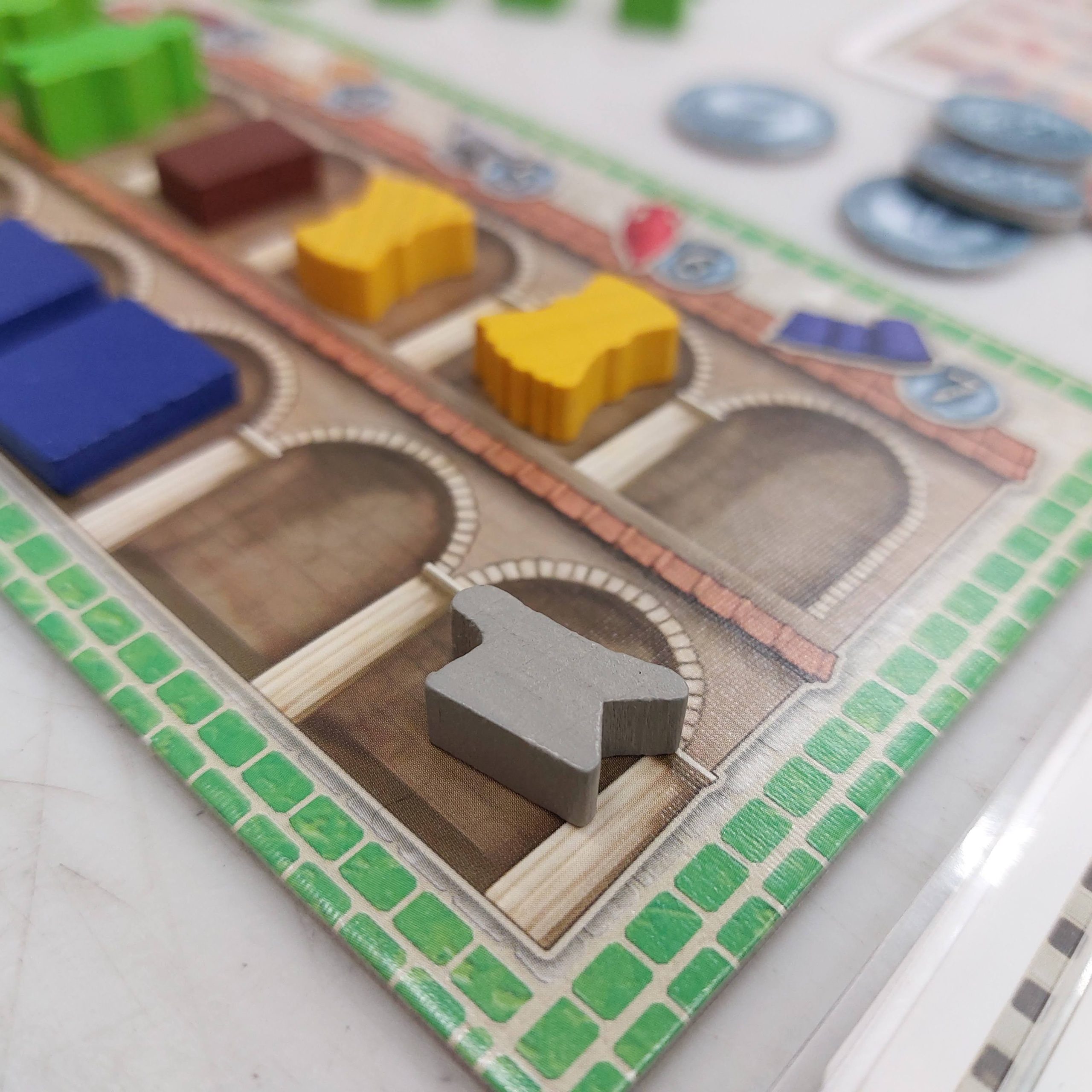
How to Play
It’s a breeze on your turn. Play a card from your hand. Okay, you probably want to know what some of the cards do and a general understanding of the game.
Essentially, over the course of the game, you’re trying to build a trading dynasty. Through moving your colonists across some part of the roman empire (map dependent) and through trading and building. While also looking to appeal to various gods, better known as scoring multipliers.
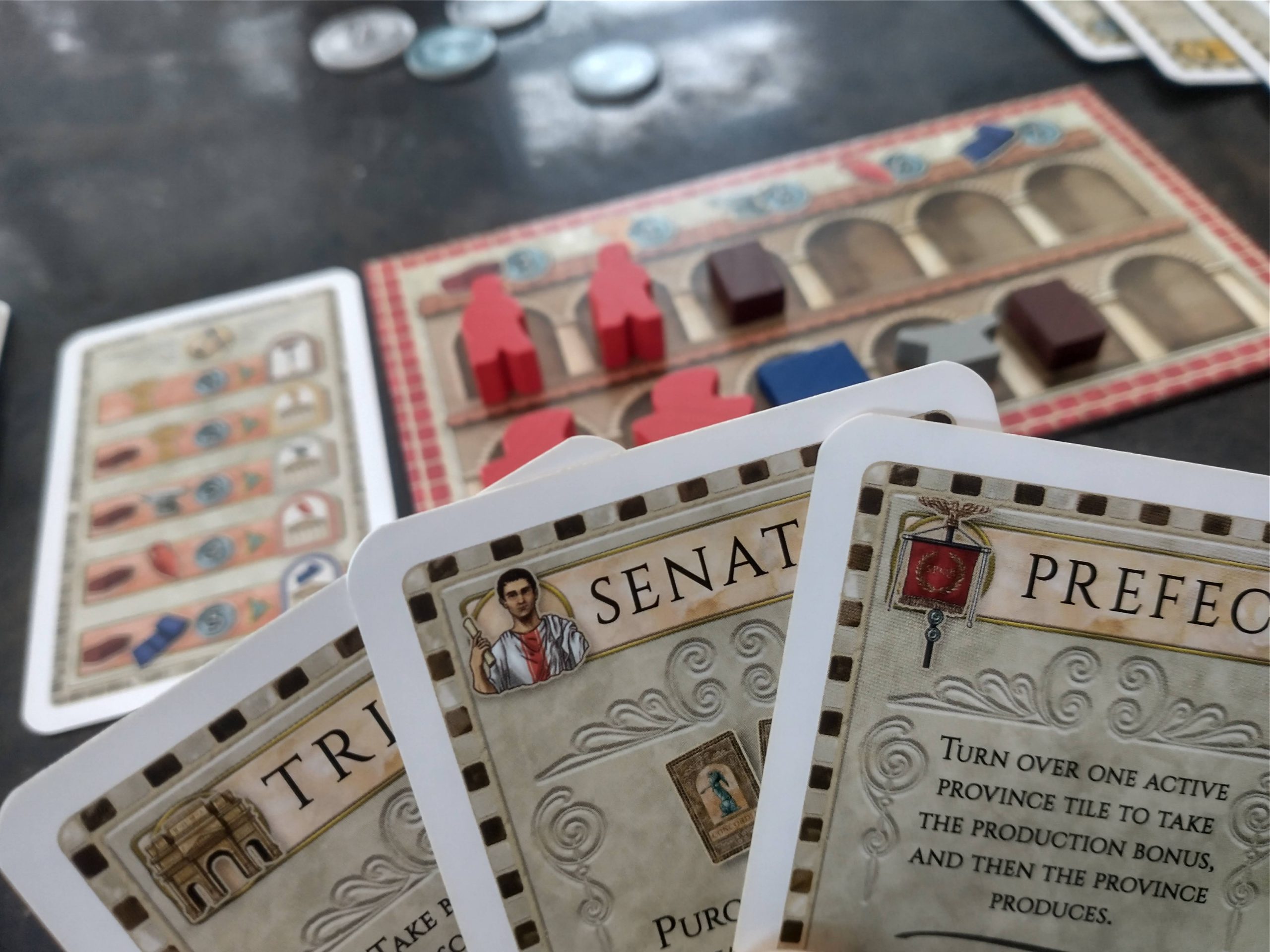
The Cards
On your turn, you play a card from your hand and take action on the card played. You’ll place the card face up in front of you, forming a pile of cards over the duration of the game.
For example, the Consul and Senator allow you to purchase new cards from the display. These cards might be more of the cards you already hold, better versions, or brand new cards. The difference between Consul and Senator is the cost you’ll pay for new cards and the number of cards you can take.
A mercator card allows you to receive some money (sesterii) and then trade two types of good. Each good comes with a fixed market price unlike the fluctuating price of goods in Clans of Calendonia. A colonists’ card allows you to either place new colonists or receive money for the number of colonists on the board.
A prefect card allows you to either choose a province where there are houses and produce goods and flip the corresponding tile. Meaning that player receives a good of that type and any player with houses in that city receive a good. Or take the cash bonus from the prefect tiles.
The tribune card allows you to pick up all previously played cards from the pile in front of you. You’ll then take money if you pick up more than 3. You may then build a colonist.
The architect card allows you to move your colonists, equal to the number of colonists you have on the board. For example, you start with two. Therefore, you’ve two points of movement. And then build in cities adjacent to those colonists.
Finally, the diplomat allows you to copy a card that’s face up in front of another player.
The other bits?
There’s a few other bits here like prefect magnus and your storehouse. But you didn’t come for a full rule teach? Either way, it can be explained in a couple of minutes, and then you’re good to go. As the cards are largely self explanatory.
The storehouse is where you’ll place goods you’ve bought or produced. At the start of the game, some of your storehouse is taken up by colonists, so until you build them you’re limited on space.
Prefect Magnus is a card that moves around the table. Whenever the player plays a prefect card and collects goods, they double its bonus. They then give the card to the next player. They hold onto this until they play a prefect card as outlined above.
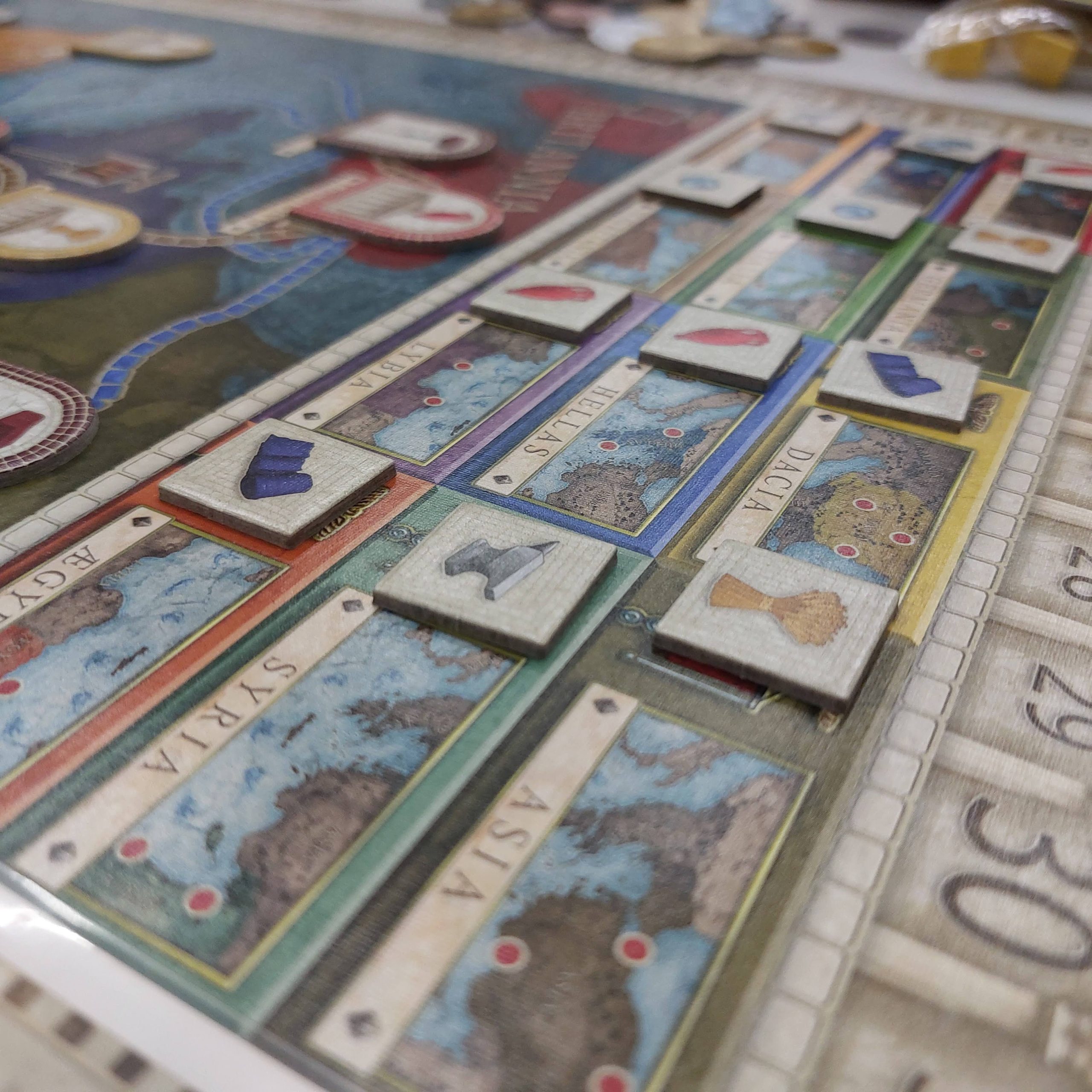
Initial Thoughts
Concordia is simple, blissfully simple that its a breeze to teach. Its mechanisms make for an excellent gaming experience that’s rewarding for new players. Yes, the theme is well beige and dry, but I think the gameplay shines through, and there’s a sense of escalation as the game progresses. When players suddenly realise the games end is almost upon then, this escalates into what can only be described as a panic.
Concordia is a brilliant piece of board game design that 10 years on is still supported. And I’m struggling with aspects or pitfalls because it’s a game I thoroughly enjoy.
However, if you must ask. It’s not great at all players. It’s alright. You need an expansion board to make it better at all player counts. Although, at two players, it feels like it’s a different game, in that it’s almost too open. And then at three players, some of the boards feel too limited whilst others feel more open. So it’s definitely best at 4 or 5, but it’s still enjoyable at lower player counts. It just doesn’t have that same level of tension. There’s also the terrible box art, but that’s a minor point. And I think in part deliberate to allow the gameplay to shine.
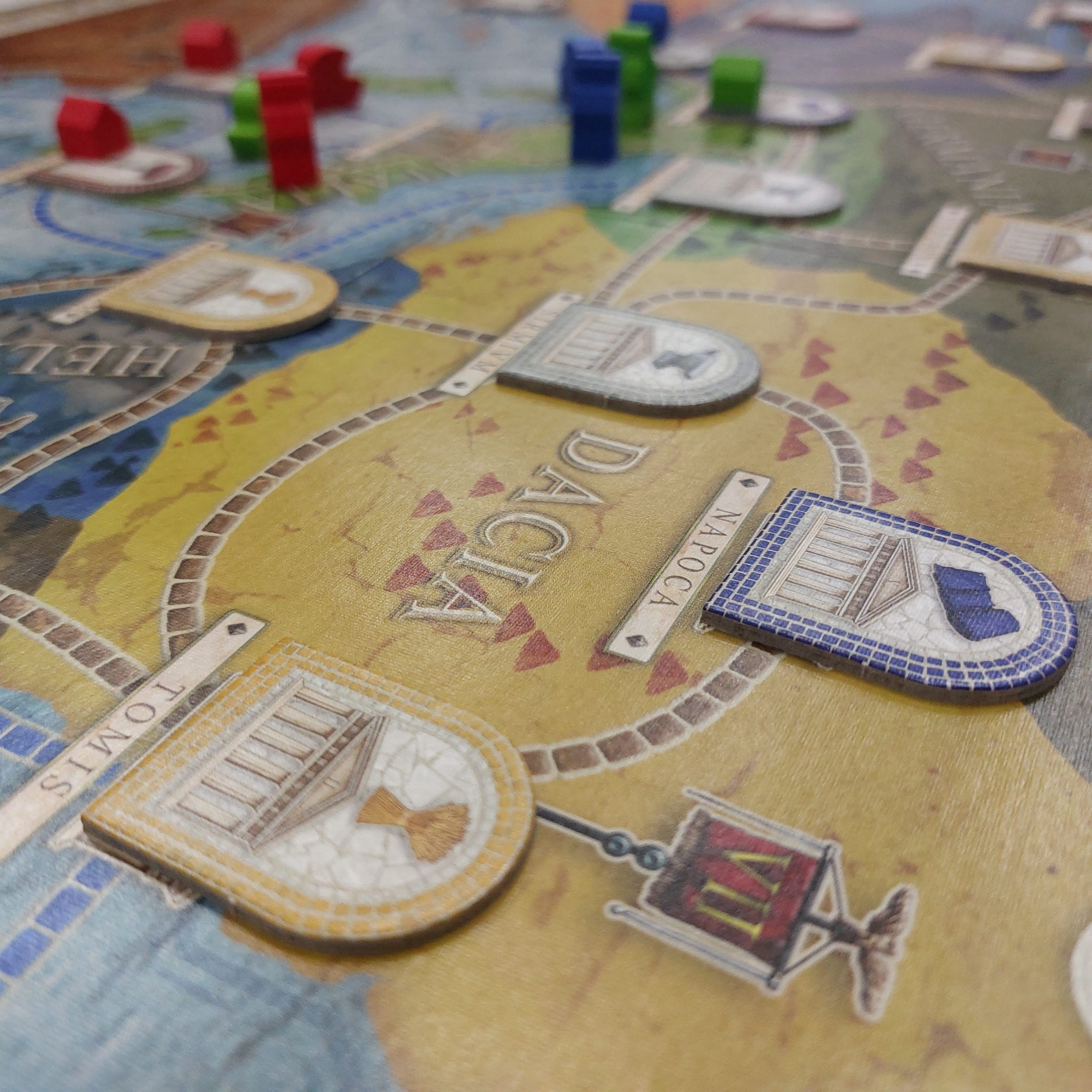
But wait there's more..
Another issue is that the rulebook refers to plays as He and him. Which seems like a simple fix. It feels like a massively outdated practice. To refer to the players as players and they/them should be common practice.
There’s also a depth here that actually needs a better player aid or explanation. The scoring is explained okay at best. The scoring aid, is well I guess, explains what’s there, but it needs a bit more. But the scoring is probably the least fun bit, or at least the most convoluted part of Concordia, which is ironically its most tense part.
See, as a game, as Concordia unravels, you’ve largely no idea who is going to win, as the board evolves through players expanding and acquiring new cards. There’s a tension to the scoring that’s immensely satisfying, but it’s tempered some way in that the scoring is poorly explained, and I’ve seen it scored incorrectly so many times. And if you read the rules as written, it doesn’t actually talk about multipliers. It’s only through reading the example of final scoring does it explain that. I feel like that’s justification for a better explanation and player aid!
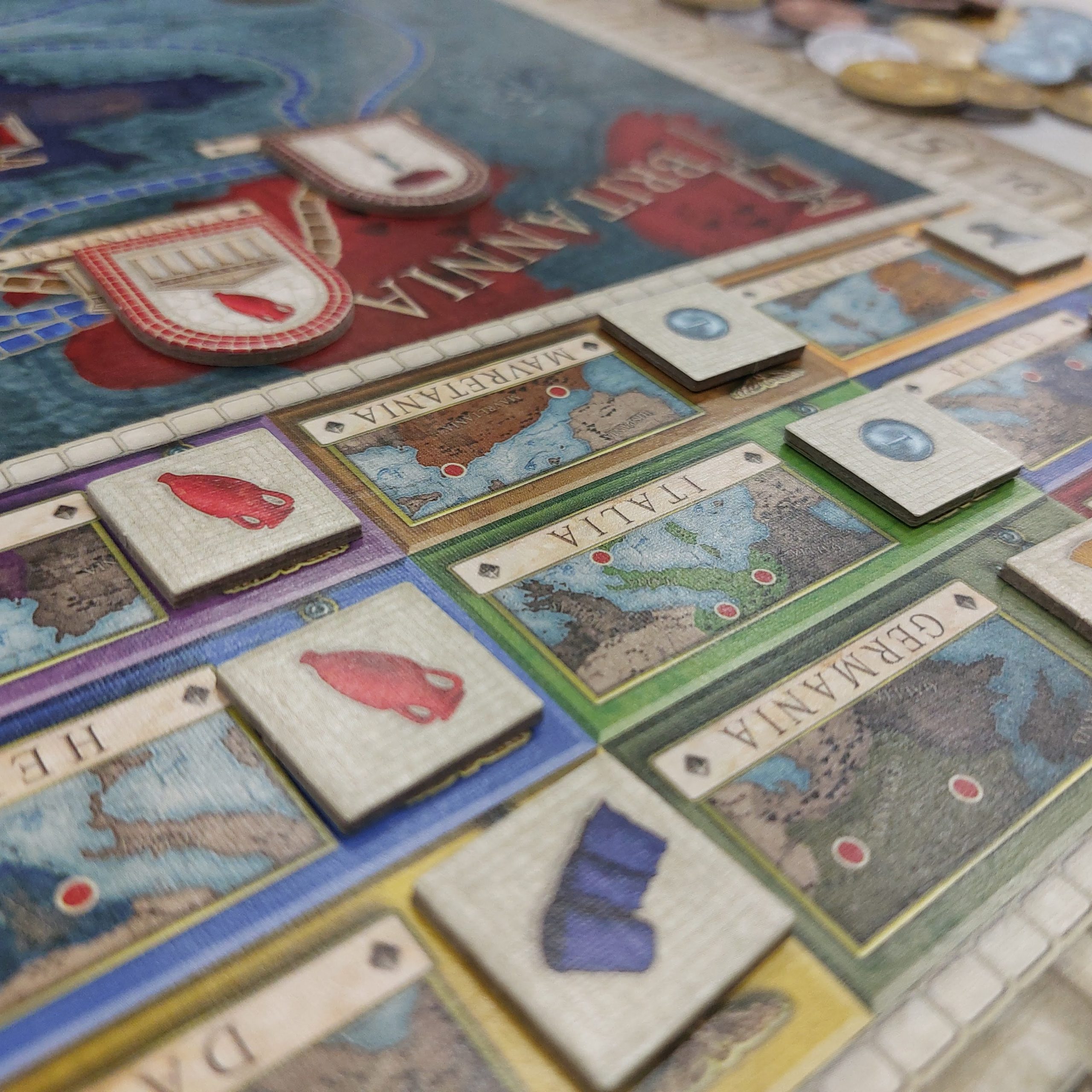
As you know, I rate games on a scale of:
Buy or play
Wait for sale or play if you like game XYZ
Avoid
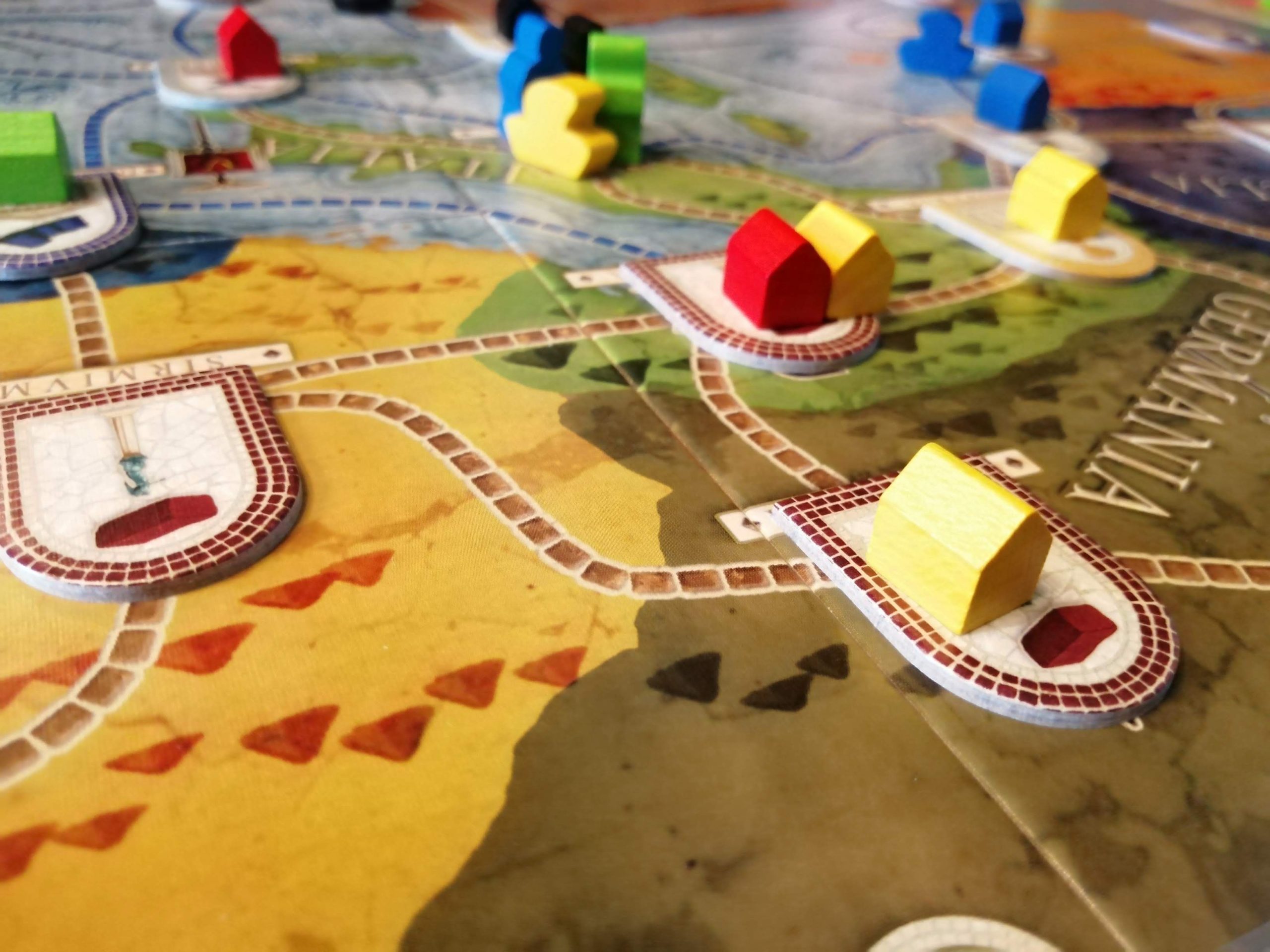
Conclusion
Concordia gets a Buy or Play recommendation. It’s brilliant. In fact, it’s a game that if you haven’t played because of the artwork. You need to overlook that and just play it for the mechanisms and gameplay. There’s a brilliance here that’s rewarding to new and veteran players. I’d happily play Concordia weekly. It’s a game I love that much. I’d love an online implementation 😀
Yes, it’s got what I consider very minor flaws, but then what board game is perfect?
If you haven’t played or tried Concordia, you can purchase it from Kienda here: https://kienda.co.uk/strategy/2054-concordia-4280000097088.html
